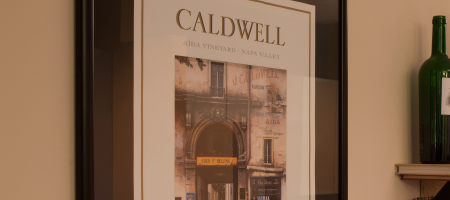
Alternative Dispute Resolution
Alternative Dispute Resolution (“ADR”) refers to structured processes, such as mediation and arbitration, which provide the opportunity to avoid the disadvantages of litigation and resolve disputes in ways that are more favorable for both sides. ADR also provides desirable alternatives to informal settlement negotiations, which can often break down without the benefit of a formal structure or access to an expert neutral. ADR offers disputing parties many advantages, including the opportunity to reach a prompt and final solution, the opportunity to craft creative business-driven solutions rather than the narrow options available at court, substantial cost savings, privacy and confidentiality, and an enhanced likelihood of preserving their business and personal relationships.
Owen, Wickersham & Erickson offers ADR services for disputants encountering various types of intellectual property conflicts, such as trademark and copyright infringements, opposition or cancellation proceedings in the U.S. Trademark Office, trademark and copyright licensing disputes, false advertising, trade disparagement, rights of privacy or publicity issues, copyright ownership and co-authorship issues, breach of agency, gallery or publishing contracts, and arts law disputes such as alleged violations of moral rights.
Owen, Wickersham & Erickson’s ADR services are truly alternative, because we offer expertise in these areas of the law. Most ADR organizations use full-time neutrals, such as retired state judges, who are out of touch with current intellectual property law or, more frequently, never had experience with intellectual property law to begin with. Such individuals tend to conduct their mediations like judicial settlement conferences. The judge is in control, and the method is to separate the parties and pressure each side for concessions until, when the parties are finally exhausted and worn-down, a monetary settlement is reached. When they serve as arbitrators, such individuals need extensive education on the applicable law, but they often do not recognize that need. Many assume that intellectual property is no different from real property or other contractual issues. Seriously flawed decisions can result. Thus, many parties come out of such ADR processes feeling unheard and battered by the system, not much different than how most parties feel at the end of litigation. The result feels like a “loss-loss”– that costs of litigation were avoided is often the only perceived benefit.
In contrast, OW&E offers ADR services by experienced and active practitioner in intellectual property law, Melville Owen. Mr. Owen has several decades of experience as an ADR neutral focused solely on intellectual property disputes. He knows the relevant law, how it applies to your dispute, and how to provide ADR services to most efficiently and effectively resolve it. OW&E offers three basic ADR processes:
Neutral evaluation
In this process, we serve as a legal expert to evaluate the dispute in light of the relevant law and present that analysis to the parties. By bringing a neutral perspective to the table, we help each side understand the realities of the law and how it applies to their position, and we will predict the most likely outcome in litigation. This can be especially helpful when counsel differ significantly in their perception of the law. If the parties request, we can then mediate the dispute by encouraging the parties to explore potential alternative solutions.
Mediation
In mediation, we serve as a neutral facilitator in a voluntary, collaborative process to help the parties work out their own solution to their dispute. We guide the parties to engage in productive communication and assist in identifying the issues in dispute, discussing all relevant concerns, developing and prioritizing their options. The law may be discussed, and our expertise may be provided, at the request of the parties. As with neutral evaluation, we do not make decisions for the parties. Our goal is to help the parties find their own mutually satisfactory, “win-win” solution that, as much as possible, accommodates the interests of all parties.
Arbitration
This option is appropriate if the dispute is contractually subject to binding arbitration, or if the parties mutually prefer to have the dispute adjudicated in a more traditional adversarial proceeding. As arbitrators, we will hear evidence and arguments from both sides, and reach a decision much like a judge or jury would in a court of law. However, unlike a judge or jury, we are experts in the law at issue, and thus can evaluate the case more effectively and efficiently. And unlike public court records, the arbitration proceedings remain private. Procedurally the process can be less formal, and thus much less expensive than traditional litigation.